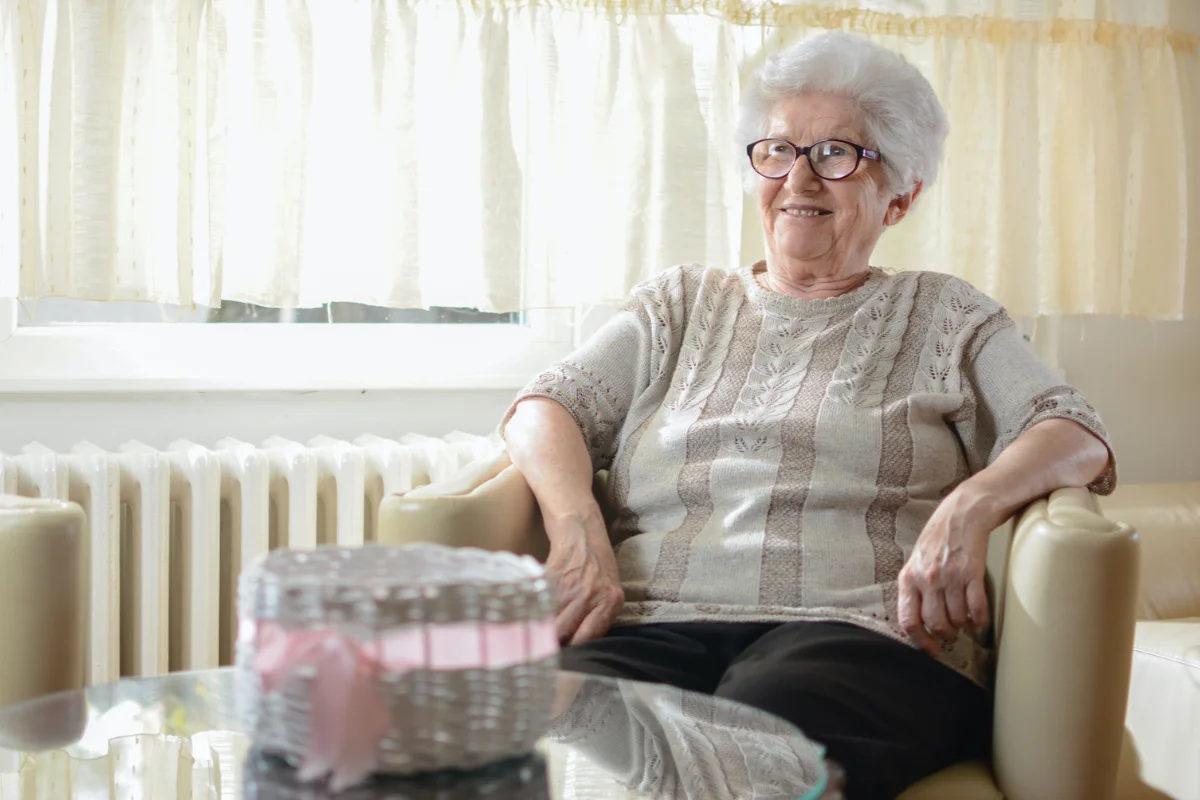Everything About Memory Care Providers: Why Small Memory Care Homes Are a Wonderful Option
Memory care solutions play a vital role in sustaining people with Alzheimer's and dementia. Small memory treatment homes stand apart for their individualized approach and intimate setting. With lower staff-to-resident ratios, these homes cultivate more powerful connections and tailored treatment. Locals gain from boosted social interactions and a safe setting. As households explore alternatives, recognizing the special advantages of tiny memory treatment homes becomes important. What elements should be thought about when choosing the best home?
Comprehending Memory Treatment Solutions
While numerous may know with general elderly care alternatives, comprehending memory treatment services is vital for households encountering the difficulties of cognitive decrease. Memory care particularly satisfies individuals with problems such as Alzheimer's disease and other kinds of mental deterioration. These services give a structured setting that concentrates on improving the quality of life for homeowners with specialized treatment and support.Memory care facilities are developed to guarantee safety and security and protection, usually including secured atmospheres to avoid roaming. Trained team members are offered all the time to assist with everyday tasks, drug management, and personal treatment. Additionally, memory care programs commonly consist of cognitive excitement activities, tailored to involve homeowners and advertise mental wellness. Family members can take advantage of understanding these services, as they make it possible for educated decisions concerning their enjoyed ones' treatment, making sure that their particular requirements and choices are resolved in a encouraging and compassionate way.
The Advantages of Tiny Memory Care Homes
Little memory care homes provide distinctive benefits that can considerably improve the quality of life for residents with cognitive impairments. One considerable benefit is the intimate environment, which allows for personalized interactions amongst team and residents. This smaller setting fosters significant partnerships, lowering feelings of seclusion and anxiety typically experienced by people with memory issues.Additionally, the reduced staff-to-resident ratio in tiny memory treatment homes allows caregivers to supply more mindful supervision and support. This approach not only improves security but additionally advertises a sense of safety for the residents.Moreover, tiny memory care homes can adapt quickly to the unique demands and preferences of each homeowner, enabling a much more homelike environment. Such an atmosphere can encourage social involvement and involvement in activities, inevitably improving the day-to-day experiences of those living with cognitive problems.
Personalized Care Program for Citizens
Customized treatment strategies are important in memory care homes, as they deal with the one-of-a-kind requirements and choices of each local. These strategies begin with comprehensive analyses conducted by experienced specialists, who examine cognitive abilities, case history, and personal passions. This tailored method warranties that care is not just reliable yet likewise considerate of each person's self-respect and autonomy.Moreover, individualized treatment plans are flexible, enabling changes as locals' demands develop over time. This adaptability cultivates a complacency and knowledge, which is vital for people living with memory difficulties. Caretakers are educated to apply these strategies regularly, supplying assistance that straightens with the residents' routines and preferences.Ultimately, individualized treatment plans enhance the lifestyle for locals by advertising engagement, well-being, and independence, making them an essential element of memory care services in tiny memory treatment homes.
Developing a Home-Like Setting
Developing a home-like setting is essential for fostering convenience and knowledge in memory care settings, as it substantially influences residents' psychological wellness. Tiny memory treatment homes usually prioritize tailored touches, such as warm color schemes, household images, and familiar furniture setups, which help homeowners feel more comfortable. Including aspects similar to a typical home, like relaxing living rooms and common areas, encourages a sense of belonging.Moreover, making use of natural light and outdoor rooms can improve the atmosphere, promoting leisure and tranquility. Employee play a significant duty in maintaining this atmosphere by involving with residents in a thoughtful manner, treating them like household. Regular activities, such as cooking or horticulture, can also contribute to a home-like feeling, using chances for residents to join significant experiences. Generally, producing a supporting atmosphere sustains cognitive feature and psychological security, making it an important facet of memory care services.
Enhanced Social Communication and Area
Enhanced social interaction and community are crucial elements of memory care services. By promoting personalized social interaction and developing a family-like atmosphere, these services promote significant links among citizens. Group occasions and tasks better urge engagement, aiding people really feel more consisted of and sustained.
Personalized Social Engagement
While social interaction is vital for general wellness, many individuals with memory disabilities commonly battle to involve meaningfully with others. Personalized social interaction in memory treatment homes addresses this difficulty by developing customized activities that accommodate homeowners' special interests and capabilities. By focusing on private choices, caregivers can foster links that resonate deeply with each individual. Activities such as art therapy, music sessions, and led discussions promote cognitive excitement and psychological expression. Additionally, little group settings encourage friendship and permit even more intimate interactions, enhancing sensations of belonging. This method not only battles sensations of isolation yet additionally encourages citizens to maintain a feeling of identification, eventually adding to boosted psychological wellness and top quality of life.
Family-like Atmosphere
In a memory treatment setting, cultivating a family-like ambience greatly boosts social communication and builds a feeling of neighborhood among citizens. Smaller sized memory care homes frequently prioritize intimate settings, enabling residents to create closer connections with one an additional and personnel. This nurturing atmosphere advertises trust, which is vital for people with memory disabilities. Residents are most likely to involve in conversations and share experiences, producing a helpful network that minimizes sensations of loneliness. The knowledge of common spaces and regimens adds to a sense of belonging, even more urging social interaction (personalized memory care). In such setups, psychological bonds flourish, bring about improved overall wellness and a better of life for locals as they browse their day-to-day experiences with each other
Team Activities and Events

Safety and Safety And Security Features in Tiny Homes
Lots of small homes developed for memory care incorporate essential security and safety attributes to assure the health of locals. These homes often utilize safe access and departure points to stop straying, a typical concern amongst individuals with memory impairments. In addition, monitoring systems and alarm devices improve monitoring, guaranteeing that staff can promptly reply to any kind of uncommon activities.Interior formats are customized for safety, with minimized threats such as sharp edges and clutter-free pathways. Handrails and non-slip floor covering are usually installed to decrease the risk of drops. Staff members are learnt emergency situation methods, guaranteeing they are prepared for numerous situations.Moreover, personalized treatment strategies may consist of assessment of private safety requirements, providing tailored options for each and every citizen. On the whole, these safety and safety and security functions create a caring environment where citizens can flourish while keeping their dignity and independence.
Exactly how to Choose the Right Memory Treatment Home
How can family members ensure they pick the most suitable memory treatment home for their enjoyed ones? The choice requires cautious consideration of a number of their website aspects. First, family members must evaluate the facility's personnel qualifications and training, making certain that caregivers are experienced in managing memory-related conditions. Next off, it's essential to analyze the home's environment, focusing on security attributes and whether it cultivates a sense of community and belonging. Going to the center can give insight into daily activities and the social atmosphere, which are crucial for psychological excitement and psychological wellness. Additionally, households need to inquire about the care plans supplied, ensuring they are tailored to individual needs. Considering the home's place and access for family members visits can contribute to a smoother shift. By resolving these aspects, family members can make an enlightened choice that prioritizes their enjoyed one's comfort and lifestyle in a memory care setting.
Frequently Asked Inquiries
What Credentials Should Personnel Members in Memory Care Residences Have?
Personnel in memory treatment homes need to have relevant certifications, experience in mental deterioration care, strong communication abilities, and empathy. Recurring training in behavioral administration and therapeutic interventions boosts their capability to sustain locals properly.
How Do Memory Treatment Services Differ From Standard Assisted Living?
Memory treatment services concentrate particularly on individuals with memory problems, supplying specialized assistance and structured environments. In comparison, typical assisted living uses basic help with daily activities, doing not have the pop over to these guys customized approach required for those with cognitive difficulties.
What Kinds of Activities Are Used in Memory Treatment Houses?
Memory care homes typically offer a variety of activities created to engage homeowners. Common choices consist of art therapy, songs sessions, cognitive games, workouts, horticulture, and gatherings, all targeted at enhancing health and cognitive function.
Can Citizens Bring Their Own Personal Belongings to Memory Care Residences?
Locals can typically bring their own personal belongings to memory treatment homes, permitting them to individualize their home - personalized memory care. This practice helps create a familiar environment, promoting comfort and a sense of identity for the individuals

How Are Relative Associated With the Treatment Process?
Relative play a vital function in the care process, often taking part in decision-making, going to care meetings, and offering psychological support. Their involvement fosters a collaborative environment, enhancing the local's general wellness and high quality of life. While numerous may be familiar with basic senior care alternatives, recognizing memory treatment solutions is vital for family members encountering the difficulties of cognitive decline. These solutions provide an organized atmosphere that focuses on enhancing the top quality of life for locals through specialized treatment and support.Memory treatment facilities are made to guarantee safety and safety and security, commonly including safeguarded settings to avoid roaming. Individualized treatment strategies are crucial in memory treatment homes, as they provide to the unique needs and choices of each local. Team members in memory care homes ought to have appropriate certifications, experience in mental deterioration treatment, strong interaction skills, and concern. Memory care solutions focus specifically on individuals with memory impairments, providing customized support and structured settings.